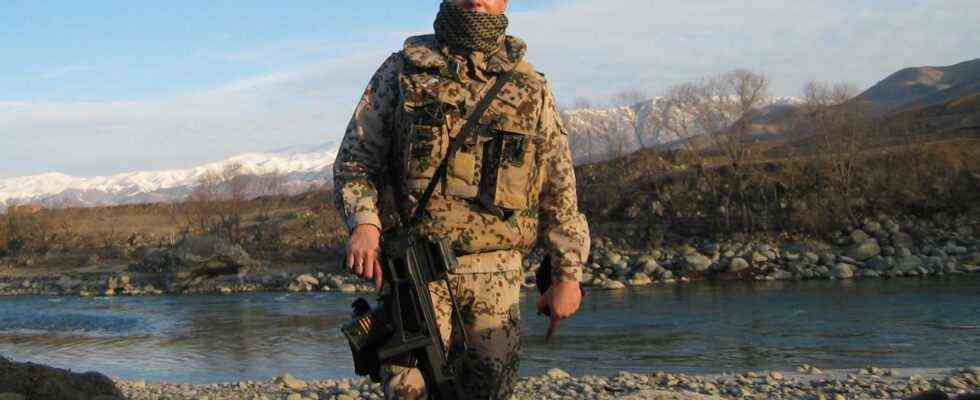Status: 10.09.2021 03:01 a.m.
The deployment of the German Armed Forces in Afghanistan was a direct consequence of the terrorist attacks of September 11, 2001. The debacle at the end of the mission is opening old wounds in veterans.
Suddenly everything is there again: the nightmares, the sleep disorders, the horror film in my head about the war in Afghanistan. For him it was almost unbearable to see the pictures of the end of the operation in the Hindu Kush and the takeover of power by the Taliban, says the former Bundeswehr soldier Andreas Eggert. “That led to retraumatisation in me. To a worsening of the symptoms.”
Eggert was deployed seven times in Afghanistan. He had to watch helplessly as comrades fell and Afghans who had grown dear to him were killed. What triggered a post-traumatic stress disorder in 2010 that never completely healed. But: “I ‘only’ got sick – in quotation marks,” he says. “Other comrades have lost their lives, relatives have lost their loved ones.”
What he once fought for
And that is precisely why it is so unbearable for the Afghanistan veteran to see everything he once fought for in ruins – and the Taliban in power Years ago. The Taliban have developed further, they are much better equipped than the German army, because they have more helicopters that work. That’s how macabre you have to say it. “
Eggert, who now lives in Bonn, decided in an interview with the ARD capital studio to talk about the flare-up of his illness. Other traumatized people currently do not want to and cannot do this in view of the pictures and reports from Afghanistan.
From the point of view of the Association of German Veterans, a huge problem is revealed here: Even after the last Bundeswehr machine returned from the Hindu Kush at the end of June and no politician came to the reception on the runway, the phones did not stand still, reports the association chairman Bernhard Drescher. In view of the Taliban’s takeover of power, it continued like this: “We were told anger and disappointment – a thunderstorm of emotions, so to speak – on all channels, which was very much discharged among the traumatized.”
Warning of radicalization
Drescher also warns of dangerous radicalization. This year, new right-wing groups such as “Veterans 5 n 12” or the “Veterans Pool” were founded, in which the fantasies of overturning are rampant. A toxic brew is now apparently threatening to intensify these tendencies: the recent events in Kabul are perceived as a “political failure” and the use of it as pointless, explains Drescher.
Namely by soldiers who first risked their lives in Afghanistan and then would have had to fight for years for recognition, therapy and compensation for their trauma: “The lack of appreciation for the state means that the people I spoke to before were disregarding this political one No longer feel represented in the middle. ” It is essential to prevent such a drift, says Drescher.
“You feel powerless and bad”
Ex-soldier Eggert is also aware of precisely these threatening extremist endeavors. But he also reports on many comrades who would like to fly to Afghanistan immediately and help. But what of course does not work: “You feel powerless and bad not being able to help.”
Eggert tries to help. And as far as his strength allows, for the Association of German Mission Veterans for all those who cannot deal with the current situation. That, he says, also alleviates the unbearable feeling of powerlessness in himself.
Afghanistan: When the trauma breaks out again
Kai Küstner, ARD Berlin, 9.9.2021 7:19 p.m.

